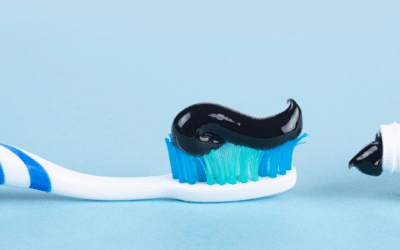5 Bad Habits that Affect Your Oral Health
You brush and floss your teeth twice a day, use dental rinses regularly, and visit your dentist twice a year for your routine checkups and cleanings. You should be acing every exam! Instead, your dentist is worried about worn-down enamel, weak or discolored teeth, and the overall heath of the soft tissue in your mouth. The following are five bad habits that may be contributing to your quickly declining grades. If these habits sound familiar, don’t worry — we have quick fixes and tricks to help you break your unhealthy patterns so you can get back to earning straight A’s.
Cold Crunches
No, we’re not talking about some strange, new fad workout designed to give you a six-pack by summer. We’re talking about you gnawing on the ice cubes in your cold drinks. Seems harmless enough, but the cold temperatures make teeth more susceptible to fracturing and breaking. Small cracks and fissures may also form in the protective layer of enamel, leading to weakened teeth down the road.
The Fix:The next time you get a drink that calls for ice, request crushed ice. It is far gentler on your teeth but still gives you that crunchy satisfaction.
Sippin’ Soda
…all day long. It’s summer. It’s hot outside, and nothing beats sipping an ice-cold, sweet, sugary beverage all afternoon long. Unfortunately, exposing your teeth to sweet and acidic beverages throughout the day can lead to tooth decay.
The Fix: If you aren’t ready to give up your soda addiction, don’t dismay. Though switching to water or a sugar-free alternative is ideal, another solution is as simple as a straw. Sipping your soda through a straw directs the flow of plaque-causing fluid away from your teeth, protecting them while allowing you to enjoy your sweet summer swill.
Teeth as Tools: Who needs tools — you’ve got teeth, right? How many times have you ripped open a package of cookies, twisted the cap off a bottle, clipped the plastic tag off a new clothing item, or ripped through tape with your teeth? Teeth should never take the place of scissors, pliers, or bottle openers. Every time you use your teeth as a tool, you risk breaking them, and you weaken or destroy the protective enamel covering, leaving them susceptible to decay.
The Fix: Find a small multi-tool to carry in your purse or pocket at all times. Leatherman® makes a vast array of multi-tools equipped to handle all your unexpected moments of need. The Leatherman Berry Brown® multi-tool is one such tool with an astounding 24 functions, and it features needle-nose pliers, a stranded wire cutter, electrical crimper, 420HC combination knife blade, saw, hammer, wrench, and more — and it costs far less than a tooth restoration.
A Hard Brush: When it comes to daily brushing, “no pain, no gain” does not hold true. For the vast majority of people, a soft-bristled toothbrush is adequate for daily brushing. Hard-bristled brushes can damage gums, root surfaces, and tooth enamel and make brushing a painful chore.
Quick Tip: Use a brush with soft, rounded bristles. The perfect toothbrush will have a head that fits perfectly into your mouth, allowing you to easily get to all of the surfaces: approximately a half inch wide and one inch tall. Visit ADA.org for a list of approved brushes.
Biting Is Bad: Your mother was right all those years ago when she sternly told you, “Teeth are not for biting!” Most people accidently bite the inside of their cheek every once in a while. Though painful, it is not overly harmful. Others, however, suffer from chronic cheek and lip biting, which can severely deteriorate your oral health by creating chronic sores that are susceptible to infection. Evidence also indicates that chronic cheek biters may be more likely to get oral cancer. Habitual cheek biting can occur when tooth misalignment causes soft tissue to get caught when the jaws bite down. It can also begin as part of a nervous habit.
Quick Tips: If you chronically bite the inside of your mouth because of misaligned teeth, talk to your dentist about getting started with corrective treatments such invisible or traditional braces. To put an end to habitual gnawing, try chewing on something else. When you feel the urge to bite down, pop a stick of sugarless gum in your mouth. It will redirect the behavior to something other than your cheek. If underlying anxieties are triggering your habit, take up anxiety-reducing activities such as yoga or meditation. Working with a behavior-modification therapist can be beneficial in severe cases.




Recent Comments